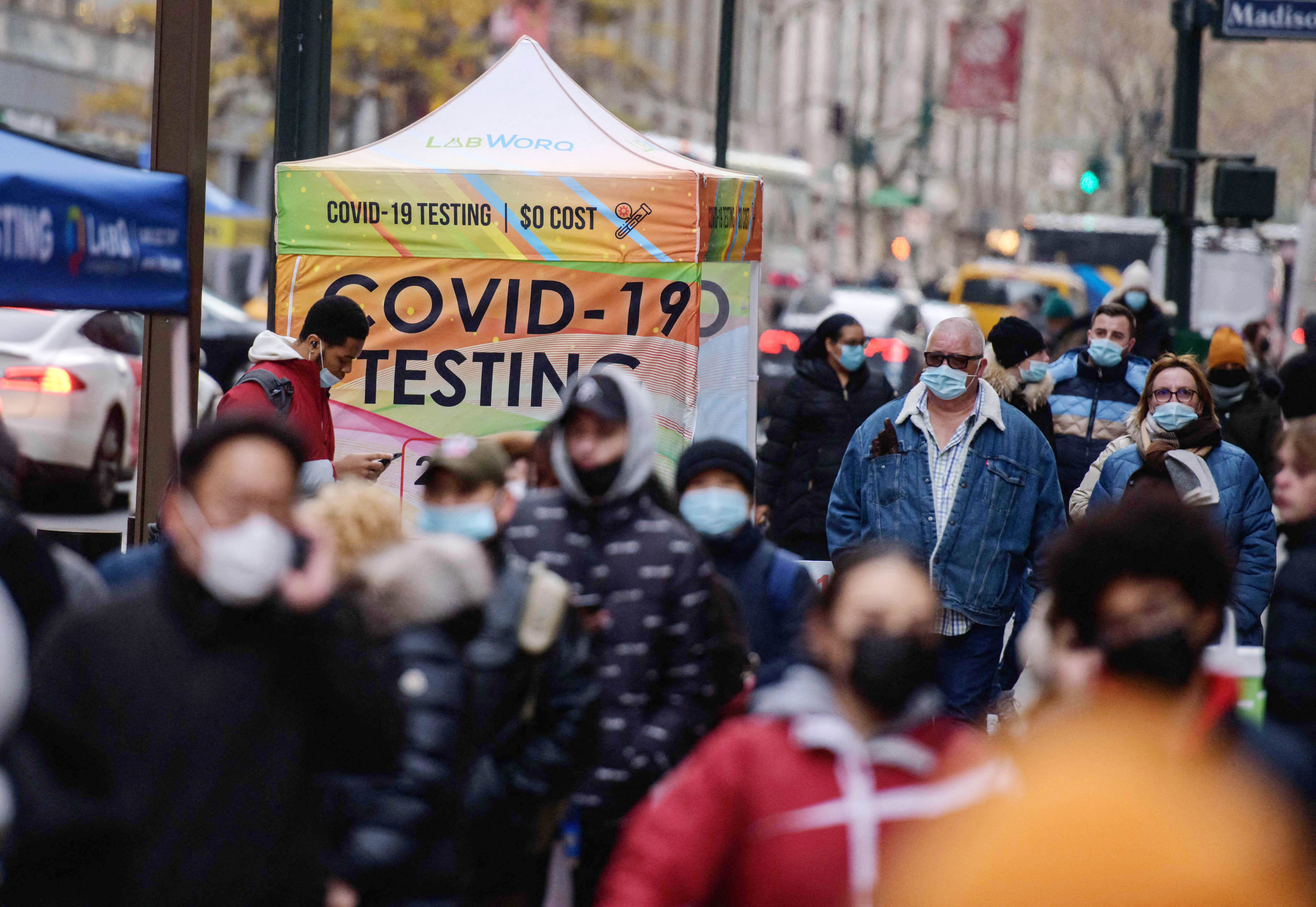
Just weeks ago, the U.S. was on track to end the pandemic in 2022. Then, omicron hit — throwing scientists' projections into disarray.
The rapidly spreading Covid variant is now responsible for 73% of U.S. cases, a rate which White House chief medical advisor Dr. Anthony Fauci called "unprecedented" during a Good Morning America appearance on Tuesday.
Now, some researchers say omicron could actually hasten the virus' transition from pandemic to endemic, albeit with large numbers of illnesses and potential deaths along the way.
The theory: Due to omicron's high rate of transmission and danger to unvaccinated and non-boosted people, hospitalizations and deaths could rise significantly in the coming weeks and months — but survivors could emerge with a degree of so-called "natural immunity" that could help protect against Covid's next variant of concern.
"As all the public health folks have been saying, it's going to rip right through the population," says Dr. David Ho, a world-renowned virologist and Columbia University professor. "Sometimes a rapid-fire could burn through very quickly but then put itself out."
Notably, natural immunity isn't nearly as reliable as vaccine-enabled immunity. Roughly 62% of the U.S. population is fully vaccinated as of Wednesday, according to the Centers for Disease Control and Prevention. Only 30% of those people have received a booster dose, crucial for bolstering protection against omicron.
It's a "speculative" theory, Ho says, based on how most viruses typically act — and Covid has certainly taken some unpredictable turns over the past two years. But the possibility has been discussed among infectious disease experts for some time.
Dr. Bruce Farber, chief of infectious diseases at New Hyde Park, New York-based hospital network Northwell Health, says the "best-case scenario" would be a highly contagious Covid variant that doesn't make most people particularly sick, and creates some level of temporarily baseline immunity in the U.S.
"It could certainly help end large spikes of deadly Covid with high hospitalizations," Farber says.
Omicron is highly contagious, but its influence on hospitalizations and deaths is yet unconfirmed by researchers. In South Africa, where the variant was first detected last month, hospitalizations and deaths have remained relatively low despite a sharp rise in new Covid cases — but experts warn that the country's vaccination demographics and hot December weather could be influencing that trend.
Still, as long as large portions of the world remain unvaccinated, Covid will keep spreading and mutating, Farber says. That means the pandemic's future timeline is highly uncertain, even as experts broadly agree that Covid will eventually become an endemic and potentially seasonal disease.
Dr. Timothy Brewer, a professor of medicine in the division of infectious diseases at the David Geffen School of Medicine at UCLA, is one of those experts: Covid isn't ever going to disappear completely, he says.
Rather, people will have to learn to live with it. Regular vaccinations and antiviral pill treatments could combine with infection-born immunity to make Covid outbreaks significantly less severe in the coming years — not unlike how doctors manage the flu, an endemic seasonal disease that has caused multiple pandemics over the past century.
"This virus is so well adapted for human-to-human transmission that it's never going to away," Brewer says. "There will be periods when there will be more cases and [fewer] cases, just like it occurs with influenza every year."
Don't miss:
Mix-and-match Covid vaccine boosters are here — How to choose the best one for you
Antibodies aren't everything — Covid vaccines have another secret weapon to fight omicron
COVID-19 - Latest - Google News
December 23, 2021 at 03:22AM
https://ift.tt/3FnFjGF
Omicron could burn through the U.S. — and potentially hasten the Covid pandemic's end, says expert - CNBC
COVID-19 - Latest - Google News
https://ift.tt/2VQ2gy8

No comments:
Post a Comment